East Coast Recovery Center offers medication-assisted treatment to help individuals with co-occurring mental health disorders and substance use disorders. Clients can learn to manage symptoms and increase the chances of long-term recovery. With our holistic approach to MAT, improved health and wellness is attainable.
Medication-Assisted Treatment is a comprehensive method for treating substance use disorders. It leverages FDA-approved medication and behavioral therapies to help individuals struggling with addiction. MAT treatment alone addresses physical and psychological aspects of addiction, like withdrawal symptoms. Studies have found that MAT is more effective than behavioral therapies or medication when used alone.
Treatments combined with MAT include individual and group therapy and 12-step programs. Family counseling and wellness activities like art are also healing approaches that are used. This treats more than just the physical parts of addiction. With holistic care, individuals are encouraged to reestablish connections and rebuild their lives.

Unlike other rehab centers around Greater Boston, we don’t rely on medications to do all the work. Our caring clinicians focus on creating treatment plans full of holistic healing methods. The team has unique skill sets so clients can find therapy methods that connect with them.
Our location in Cohasset, Massachusetts, provides a calm escape from life’s stressors. We’re surrounded by biking and walking trails, picnic spots, rocky shorelines, and more. Our peaceful heaven promotes a safe space for holistic healing and personal development.
Other key features of our MAT treatment include:
MAT can be integrated into our treatment programs. This includes our Intensive Outpatient Program (IOP) and Partial Hospitalization Program (PHP). We can also offer it through our Aftercare Program and partnered facilities. Our team assesses individual needs and goals before curating each treatment plan.
We use experiential therapies and wellness practices for the best chances of healing. Pairing MAT with evidence-based techniques, like cognitive-behavioral therapy (CBT), is a focus. This way, we help treat the mind, body, and spirit, promoting sustainable recovery.
It can be difficult to stay sober if you’re facing physical and psychological issues from all sides. Thankfully, MAT is the perfect solution. Medication-assisted therapy isn’t about supplying unregulated amounts of medication. MAT at our addiction treatment center helps individuals focus on long-term relapse prevention.
To aid with this, our team chooses and prescribes medications using these steps:
East Coast Recovery Center partners with many private insurance providers. Our team provides seamless support in verifying your insurance coverage for treatment.

East Coast Recovery Center offers intensive care for people at any stage of recovery. Our qualified staff can assess and track each client’s progress during MAT treatment. Some advantages of medication-assisted therapy include:
MAT medications can directly target symptoms of co-occurring mental health conditions. Typical disorders include depression or anxiety, which often accompany substance use disorders (SUDs). Medication-assisted treatment for co-occurring disorders aims to address both at the same time.
Medications like SSRIs and buprenorphine often have antidepressant effects. These can stabilize mood and ease depression in those with opioid use disorder (OUD). By managing mental health symptoms, MAT helps individuals engage in recovery therapies.
MAT medications, such as naltrexone, bind to opioid receptors in the brain. This occurs without creating the euphoria or sedation from opioid agonists like heroin. Individuals stabilize, allowing better focus on recovery without the urge to use drugs. Long-term, this can prevent overdose.
MAT can provide stability, which helps improve relationships, job performance, and social interactions. Individuals can rebuild healthy relationships and grow personally and professionally. Without cravings, individuals can engage more meaningfully in their communities. This benefit underscores MAT as a comprehensive means to improve quality of life.
MAT helps the brain heal and recover by balancing neurotransmitter activity. This encourages neuroplasticity (the brain’s ability to adapt and reorganize functions). It also helps reduce the harmful effects of drugs on the brain. Under strict medical supervision, safe restoration of neurotransmitter activity is achievable.
Our intake specialists assess each client’s needs and suitability for medication-assisted treatment. To be eligible, you must have an official substance use disorder diagnosis. Additionally, you need to be willing and motivated to follow prescription instructions.
You might not be able to have MAT treatment if you’ve abused prescription drugs in the past. If you have an addiction to a substance with no FDA-approved medication, MAT might not be suitable. If you’re unmotivated to recover, MAT might not be useful. Some existing medical conditions can be exacerbated by certain MAT medications.
We acknowledge how personal and nuanced each addiction is. To learn more about treatments for recovery and all they entail, feel free to take our addiction quiz.
If you or a loved one could benefit from medication-assisted treatment in Cohasset, MA, contact us today. Our treatment center is right off Massachusetts Bay, surrounded by beaches, historic districts, and a tight-knit recovery community.
We also offer dual diagnosis treatment, continued aftercare, and more. MAT treatment can easily integrate with these for holistic addiction recovery. To learn more about our services and medication-assisted treatment, visit our East Coast Recovery Center website.
Medication-assisted treatment can be maintained as long as a client needs. It’s important treatment only happens under medical supervision. Medication dosages can be adjusted by a clinician as an individual makes progress.
Most insurance plans are required by the Affordable Care Act to cover substance abuse treatment, including MAT treatment. However, coverage specifics can vary based on your provider and plan. Use our quick and easy insurance verification form to find out more.
Whether someone on MAT is considered “sober” can vary based on personal definitions. The goal of MAT is reducing substance use, and most experts don’t consider it “substance use.” Medication-assisted treatment medications must be FDA-approved. This, along with medically informed prescriptions, ensures treatment is safe.
While MAT medications ease withdrawal symptoms, they can have an impact on the body. For example, buprenorphine can affect different bodily functions, leading to drowsiness or constipation. Under the care of our medical staff at East Coast, these effects are manageable and minimized.